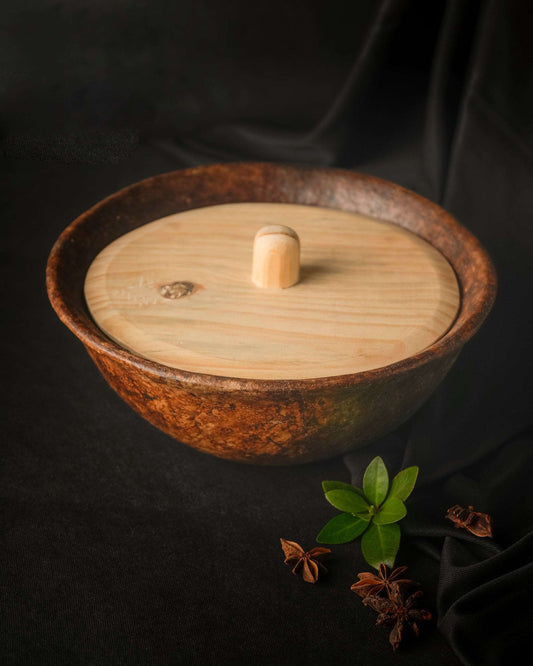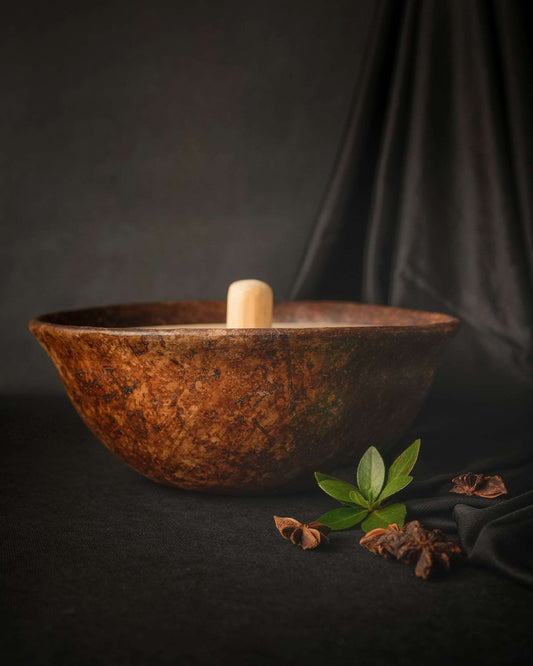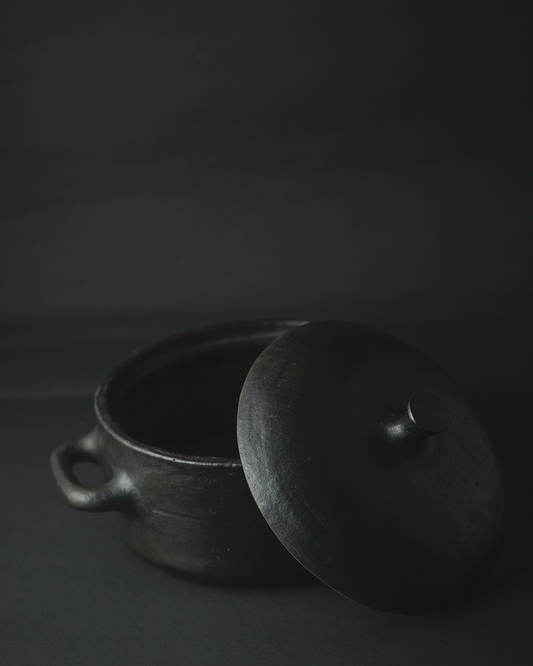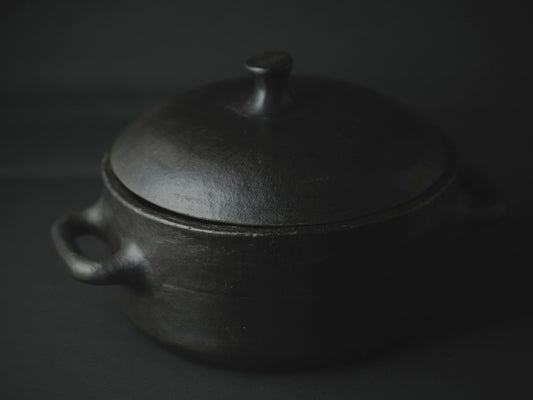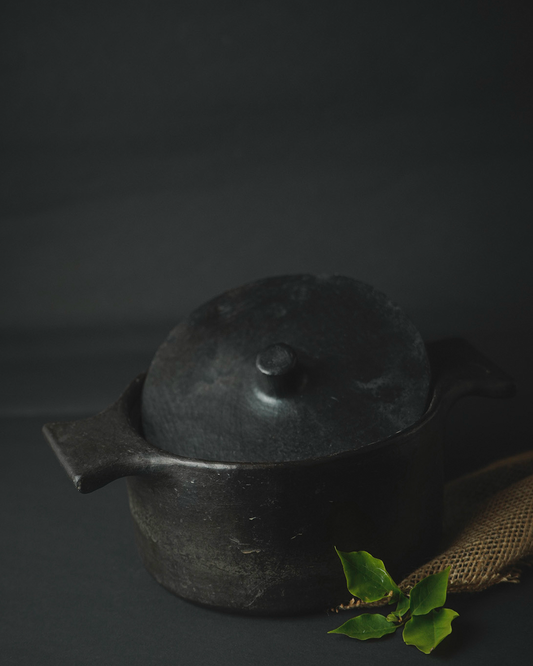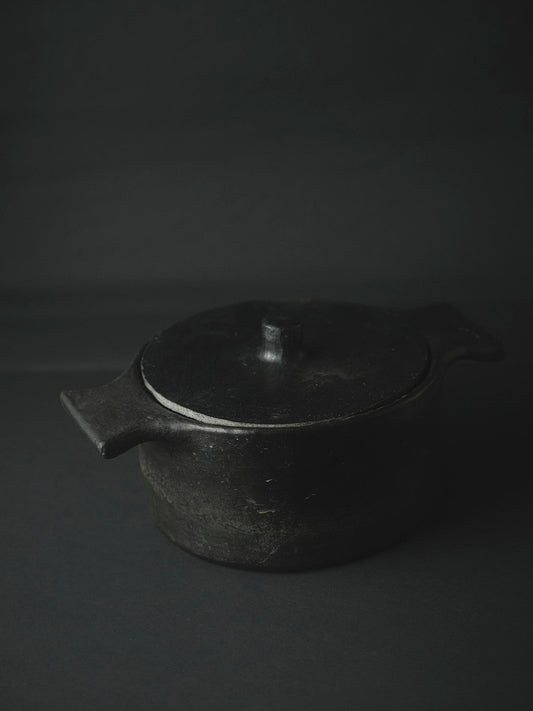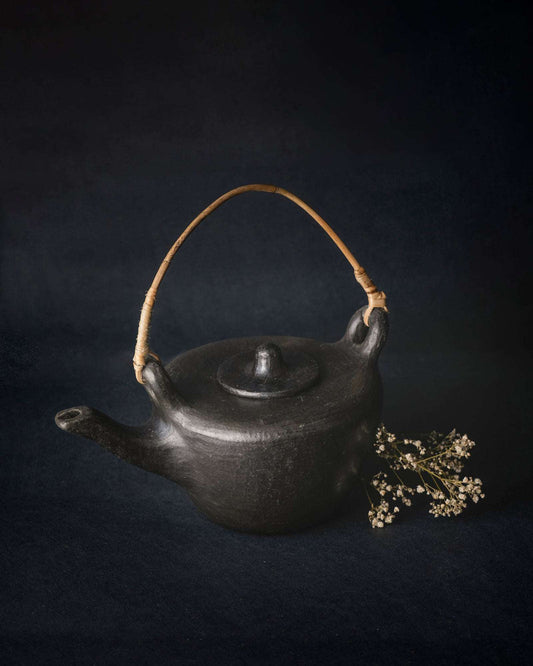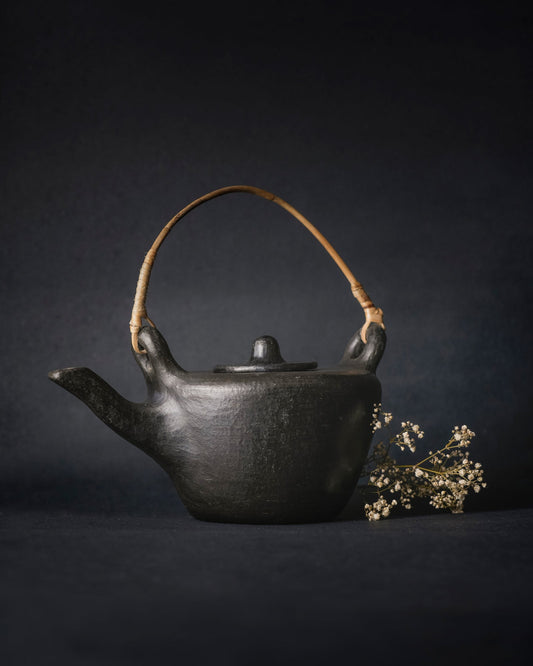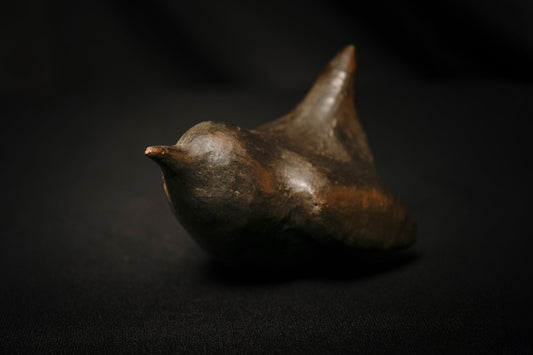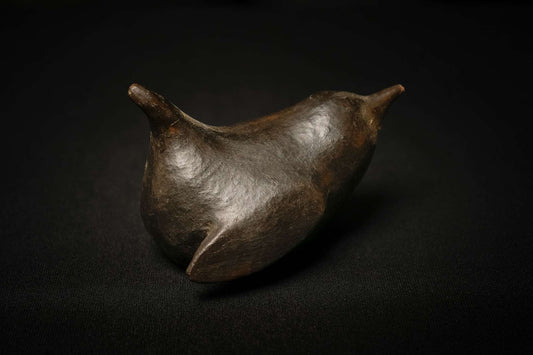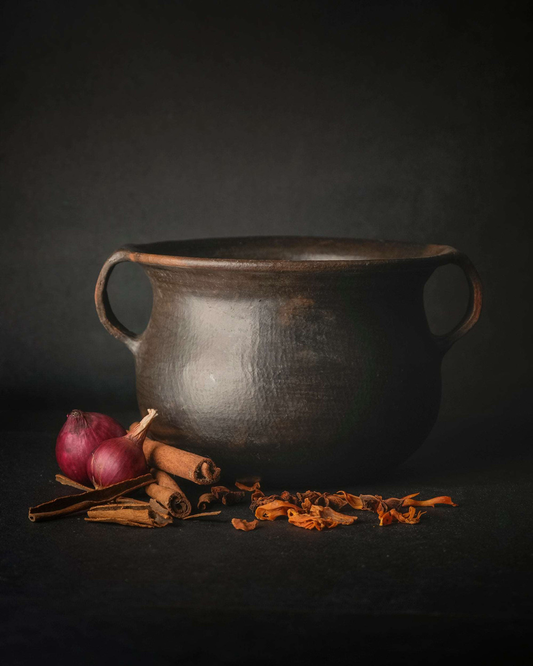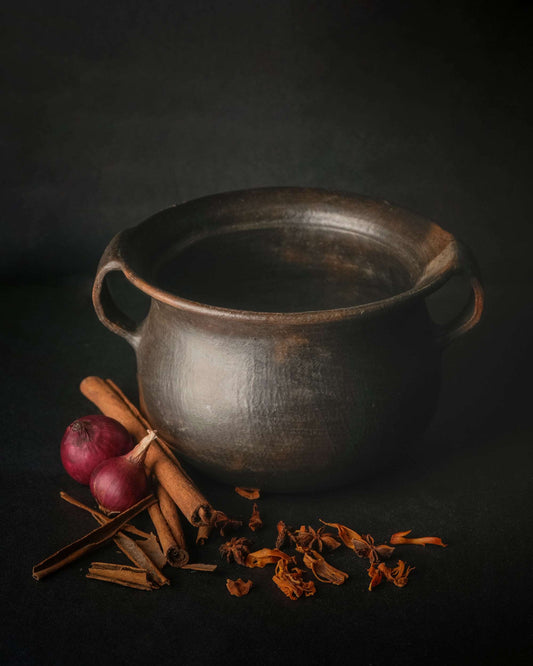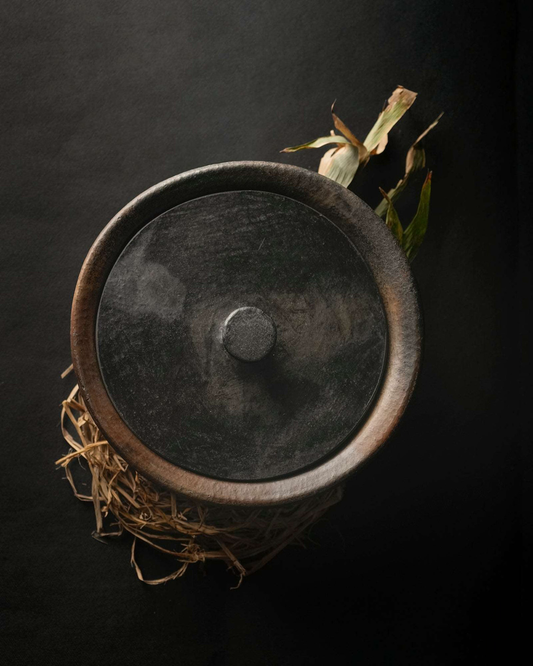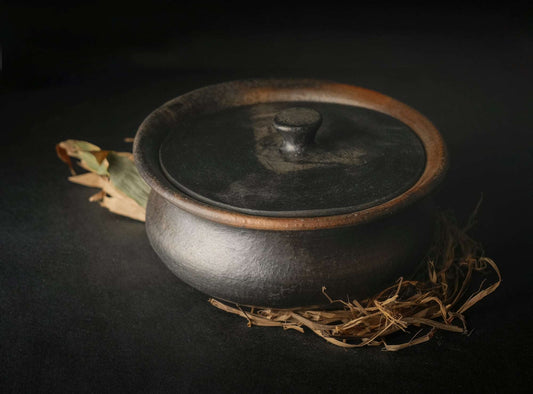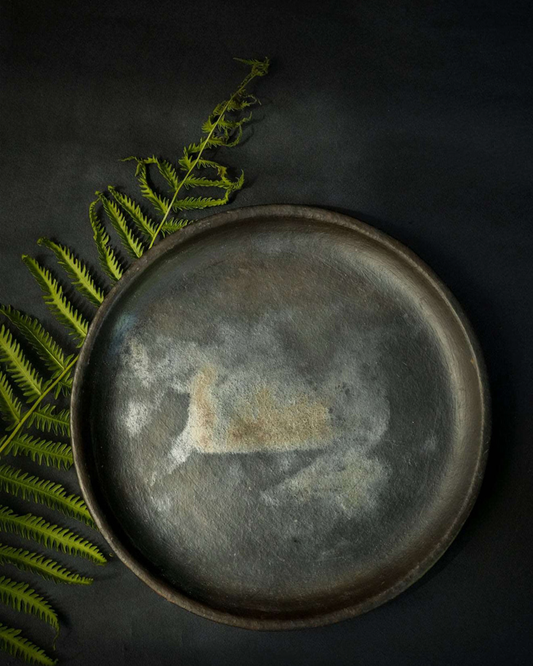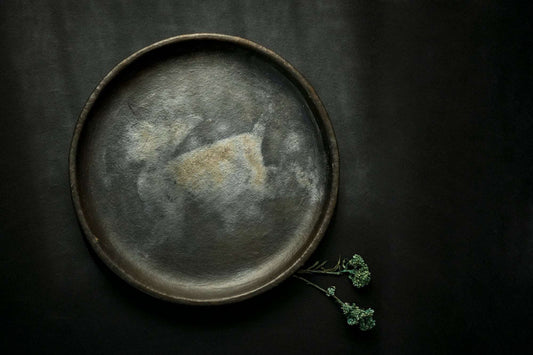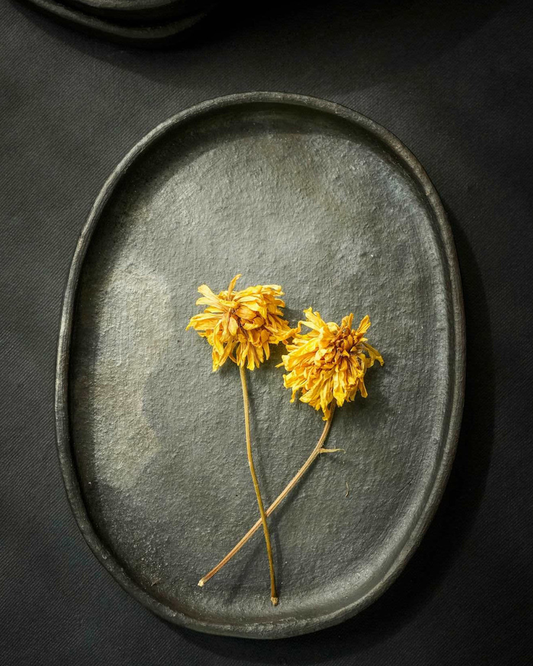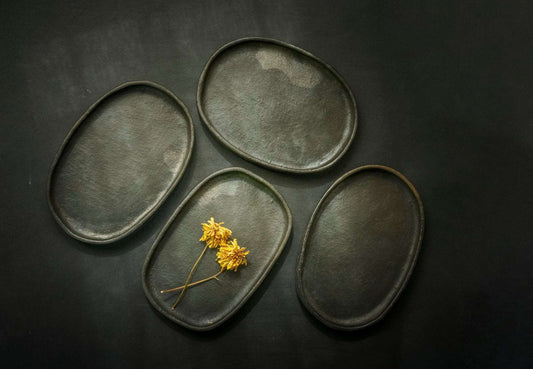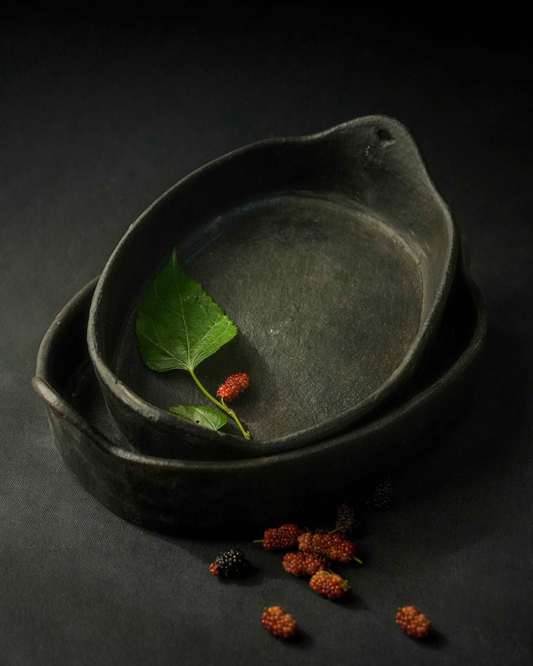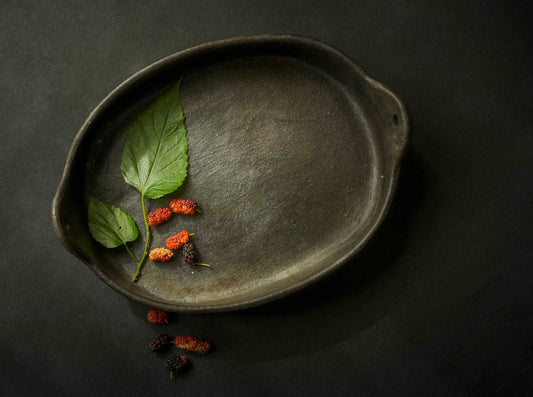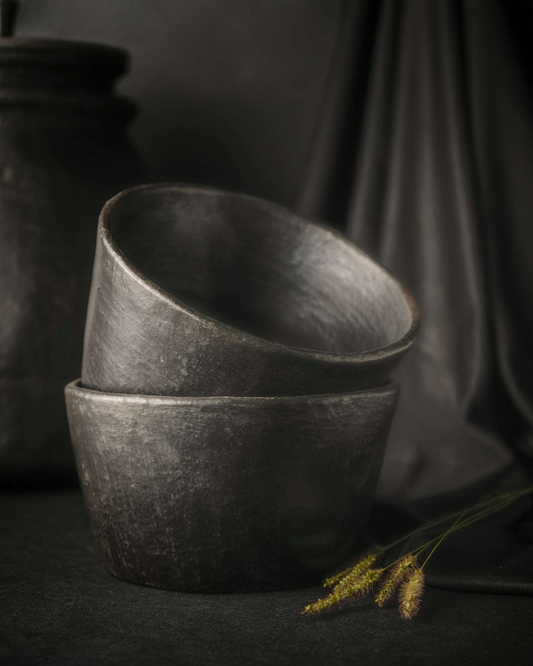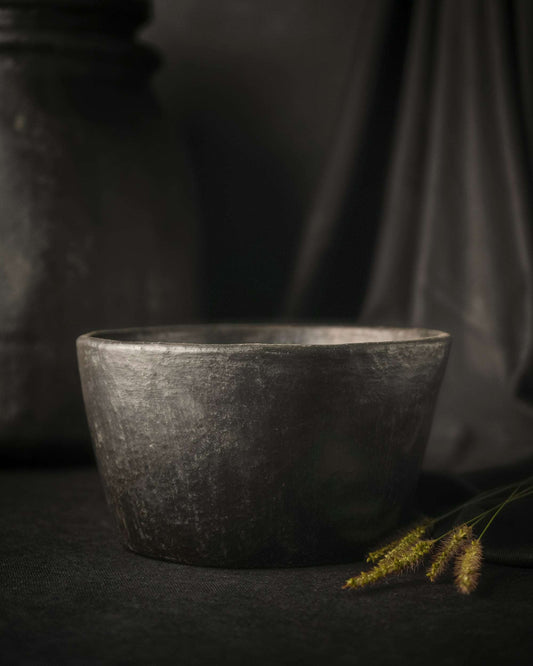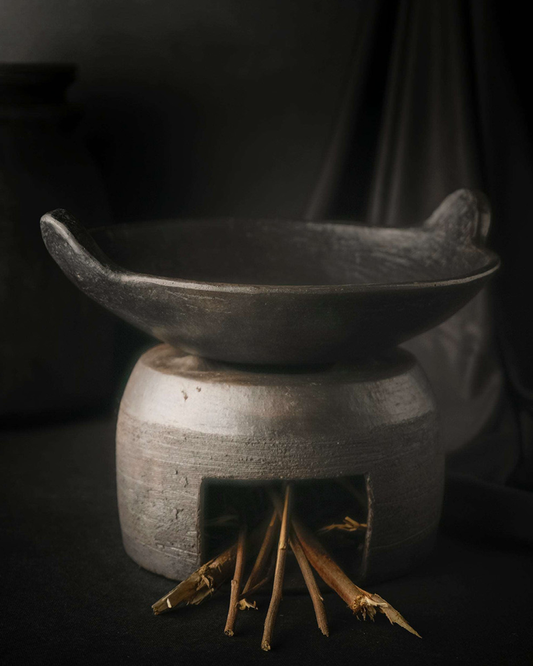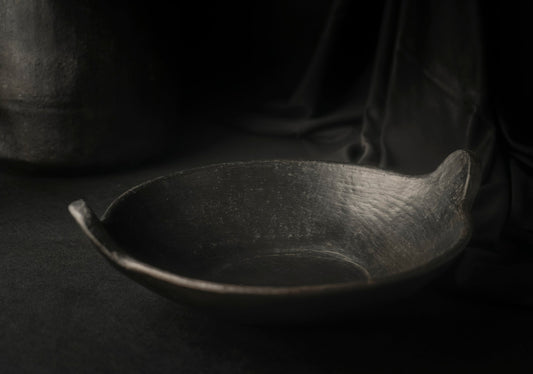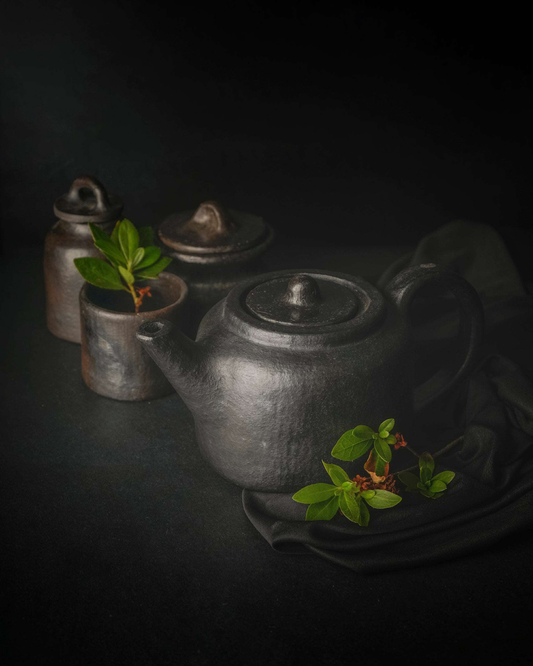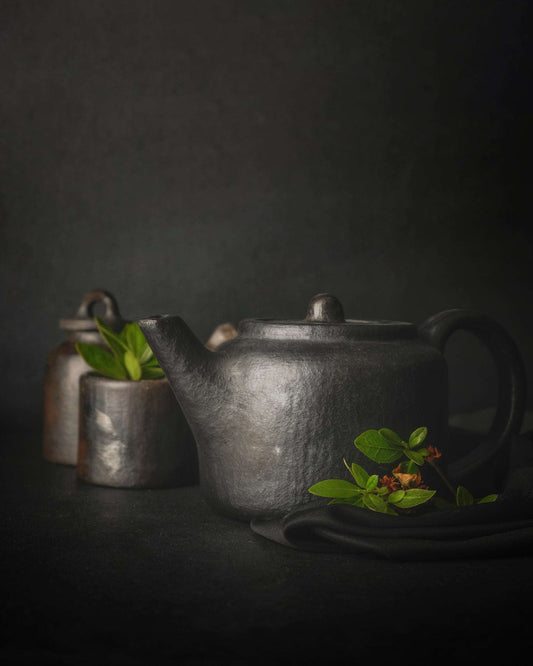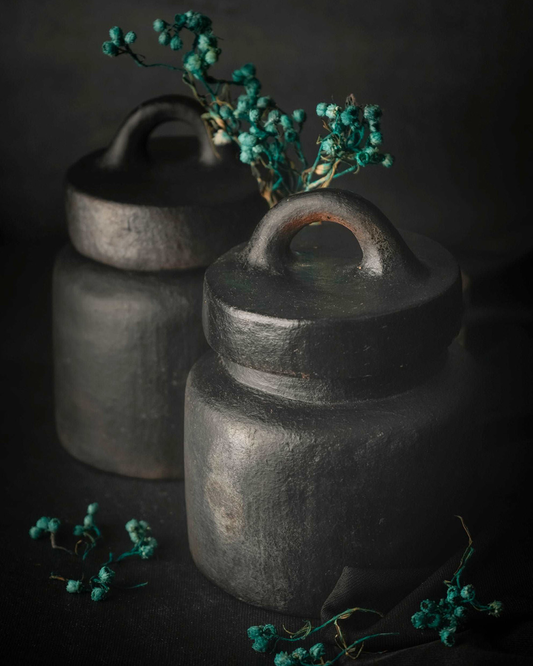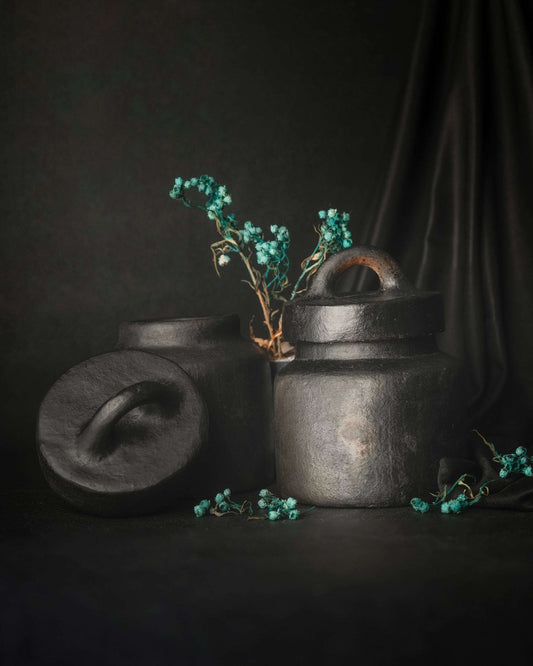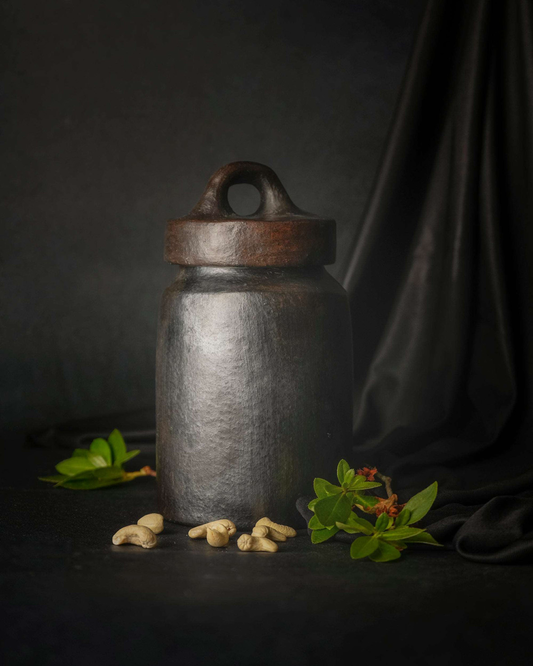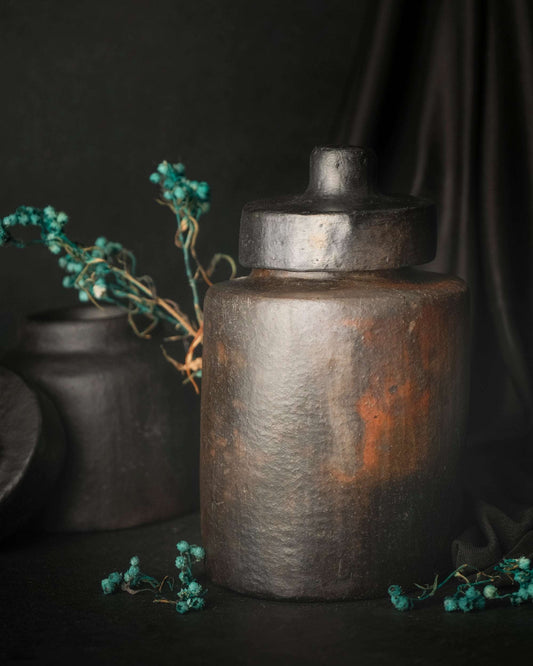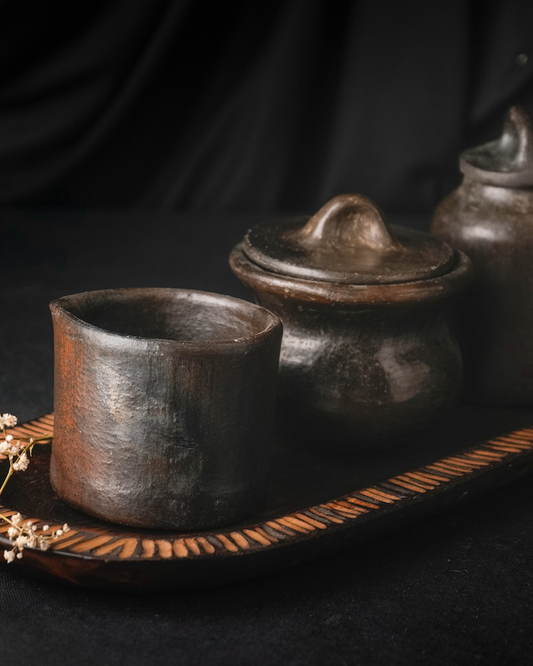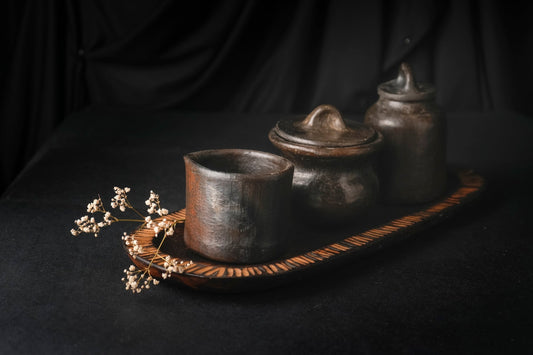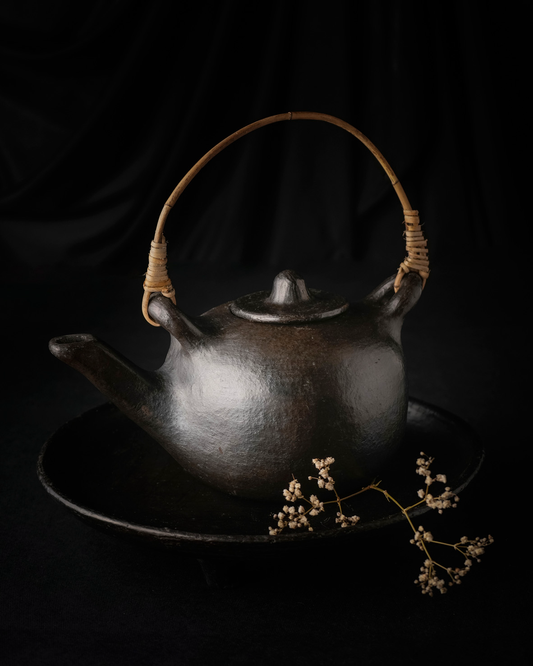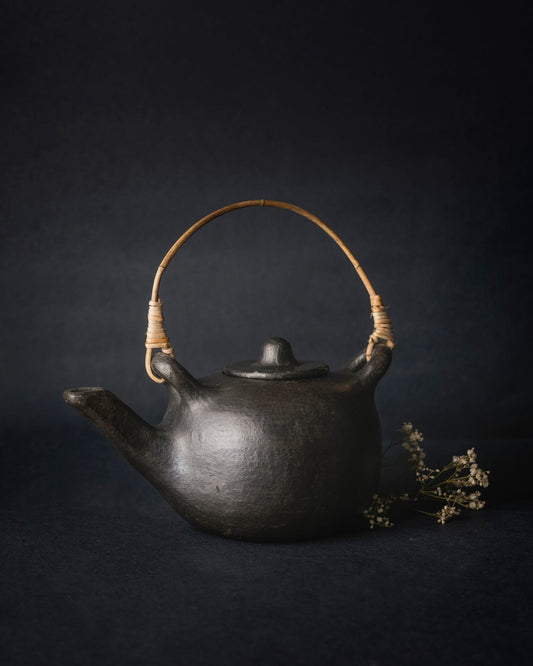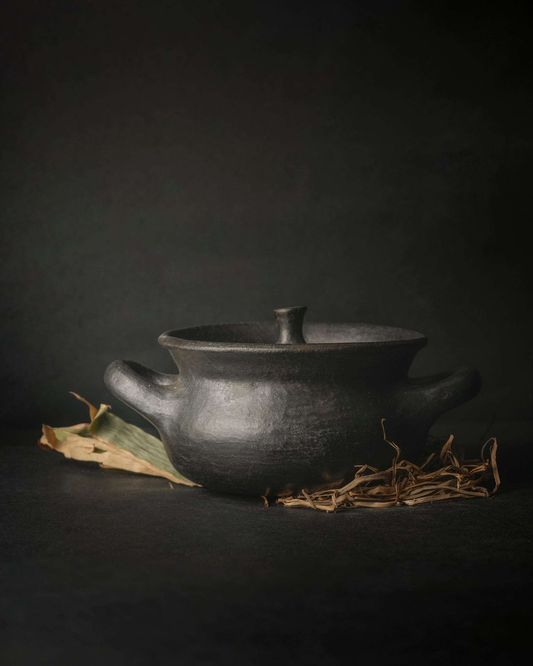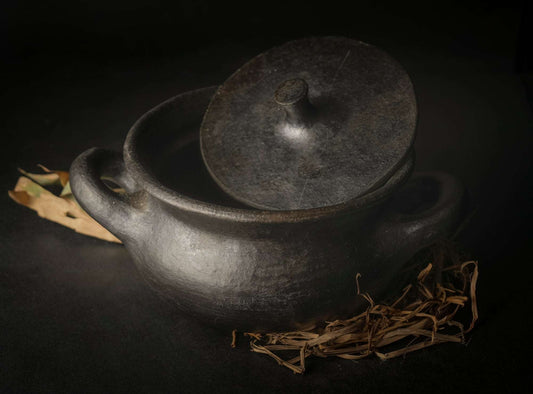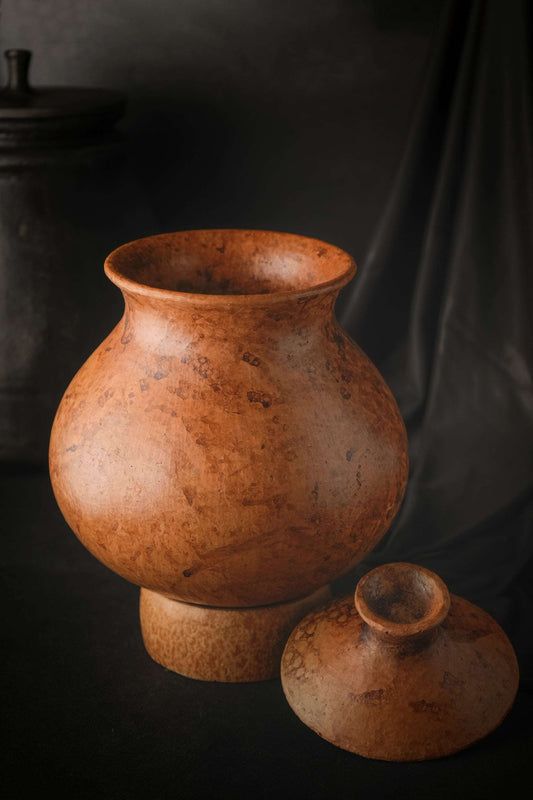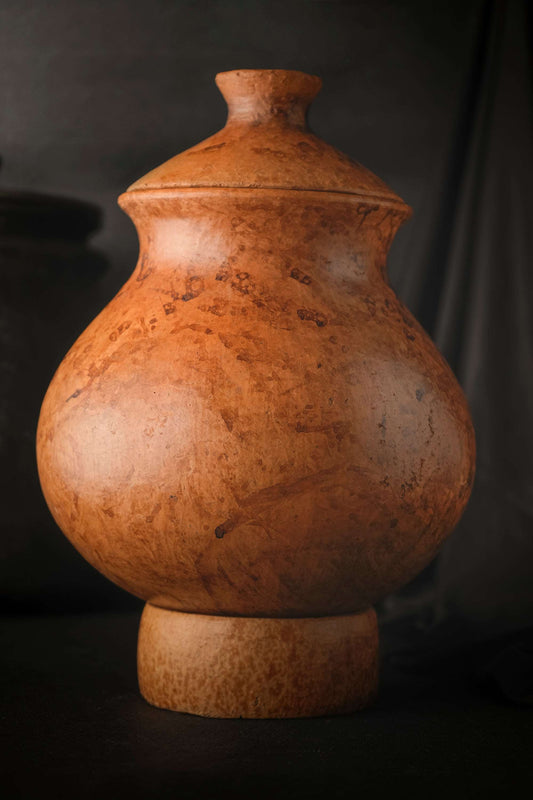Collection: Earthenware-Charai Taba Andro Pottery, Meghalaya Black Pottery, Thongjao Pottery
-
Fossil cooking kadhai
Regular price Rs. 3,000.00 INRRegular priceUnit price / per -
Fossil cooking pot
Regular price Rs. 3,500.00 INRRegular priceUnit price / per -
Longpi Black Pottery Stoneware Casserole | 2 ltr
Regular price Rs. 5,000.00 INRRegular priceUnit price / per -
Longpi Black Pottery Stoneware Casserole With Flap Wings 2 ltr
Regular price Rs. 5,000.00 INRRegular priceUnit price / per -
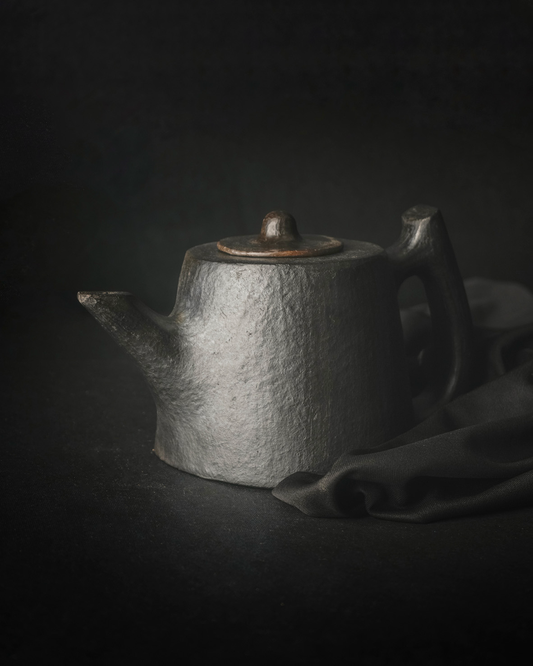 Sold out
Sold outLongpi Black Stoneware Novel Kettle
Regular price Rs. 2,800.00 INRRegular priceUnit price / per -
Longpi Black Pottery Stoneware Kettle- 1 L
Regular price Rs. 2,500.00 INRRegular priceUnit price / per -
Longpi Courage wins all wars, this little robin tells us
Regular price Rs. 1,250.00 INRRegular priceUnit price / per -
Longpi Black Pottery Stoneware Big Cooking Pot-3L
Regular price Rs. 5,500.00 INRRegular priceUnit price / per -
Longpi Black Pottery Stoneware Cooking Handi
Regular price Rs. 3,500.00 INRRegular priceUnit price / per -
Longpi Black Pottery Stoneware Round Dinner Plate
Regular price Rs. 1,500.00 INRRegular priceUnit price / per -
Longpi Black Pottery Stoneware Oval Platter
Regular price Rs. 2,000.00 INRRegular priceUnit price / per -
Longpi Black Pottery Stoneware Baker's Plate
Regular price Rs. 2,000.00 INRRegular priceUnit price / per -
Longpi Black Pottery Modern Stoneware Bowl
Regular price Rs. 1,500.00 INRRegular priceUnit price / per -
Longpi Black Pottery Stoneware Round Kadhai
Regular price Rs. 3,000.00 INRRegular priceUnit price / per -
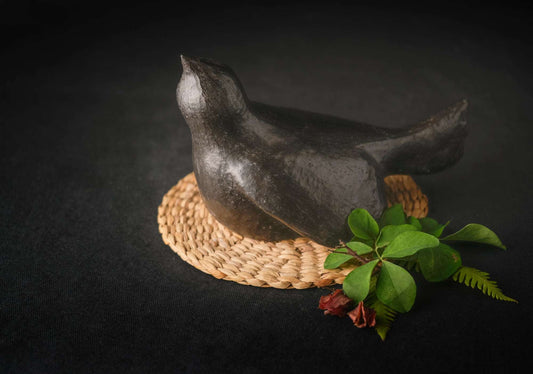
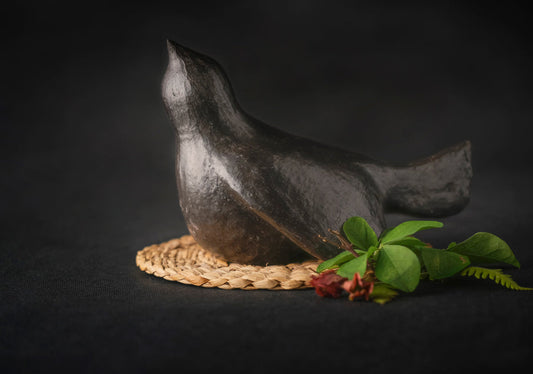 Sold out
Sold outLongpi O Cuckoo!
Regular price Rs. 1,250.00 INRRegular priceUnit price / per -
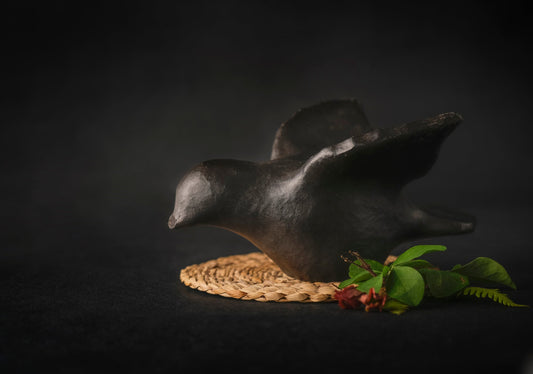
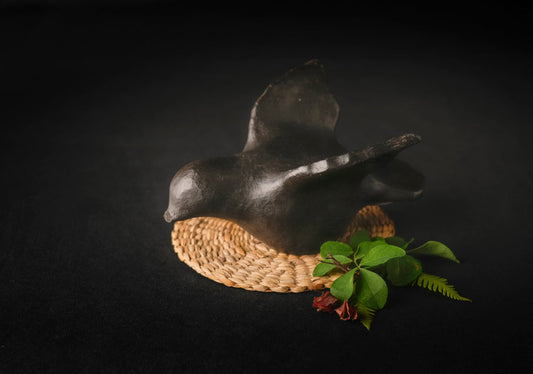 Sold out
Sold outLongpi Cuckoo's Flight
Regular price Rs. 1,250.00 INRRegular priceUnit price / per -
Longpi Black Pottery Stoneware Tea Serving Set With Kettle
Regular price Rs. 8,500.00 INRRegular priceUnit price / per -
Longpi Black Pottery Stoneware Small Storage Jar
Regular price Rs. 1,500.00 INRRegular priceUnit price / per -
Longpi Black Pottery Stoneware Medium Storage Jar
Regular price Rs. 2,500.00 INRRegular priceUnit price / per -
Longpi Black Pottery Tea time pot and server
Regular price Rs. 6,500.00 INRRegular priceUnit price / per -
Longpi Black Pottery Stoneware Kettle- 1 L
Regular price Rs. 2,500.00 INRRegular priceUnit price / per -
Longpi Black Pottery Stoneware Casserole or Cooking Pot
Regular price Rs. 3,500.00 INRRegular priceUnit price / per -
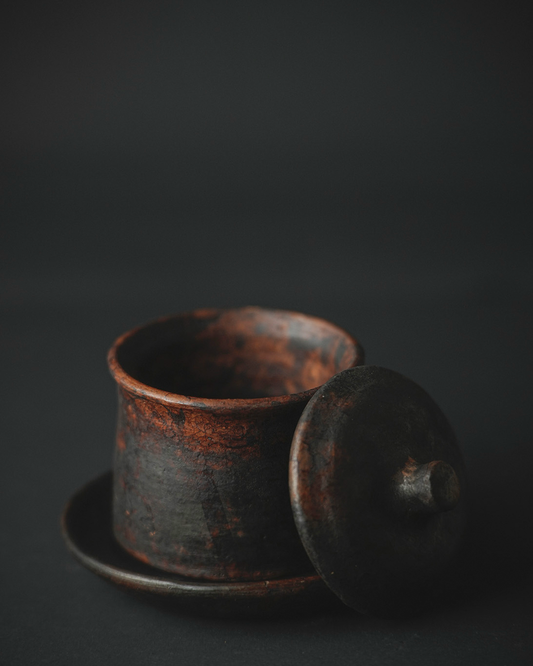
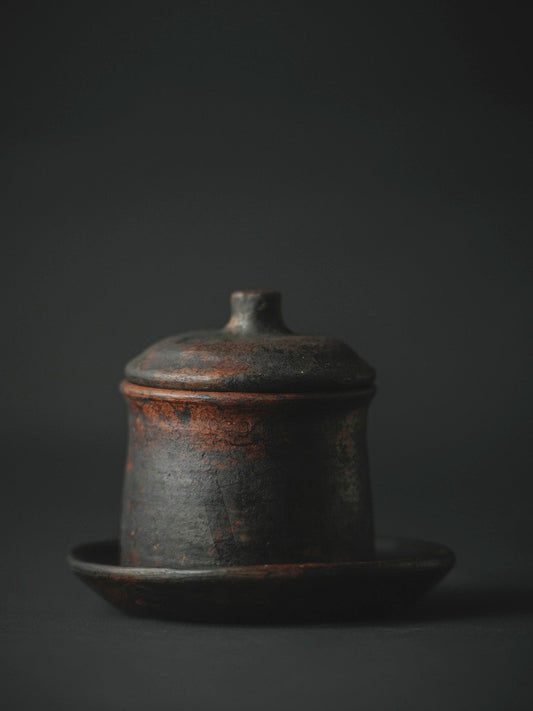 Sold out
Sold outBlack Pottery Tea Cup With Lid
Regular price Rs. 999.00 INRRegular priceUnit price / per -
Andro Yu Large Cooking Pot 6L
Regular price Rs. 6,000.00 INRRegular priceUnit price / per
Subscribe to our emails
Subscribe to our mailing list for insider news, product launches, and more.
